Talkie AI Companionship is revolutionizing the way we interact with virtual assistants by creating deeper, more meaningful connections. Unlike traditional AI, Talkie AI adapts to emotions, offers real-time support, and tailors its responses to each individual user. Whether it’s providing mental health support, learning from interactions, or offering companionship in different forms, Talkie AI offers a truly personalized experience.
Discover More About Talkie AI Features and how they redefine virtual interactions.
➤ Emotional Intelligence and Empathy
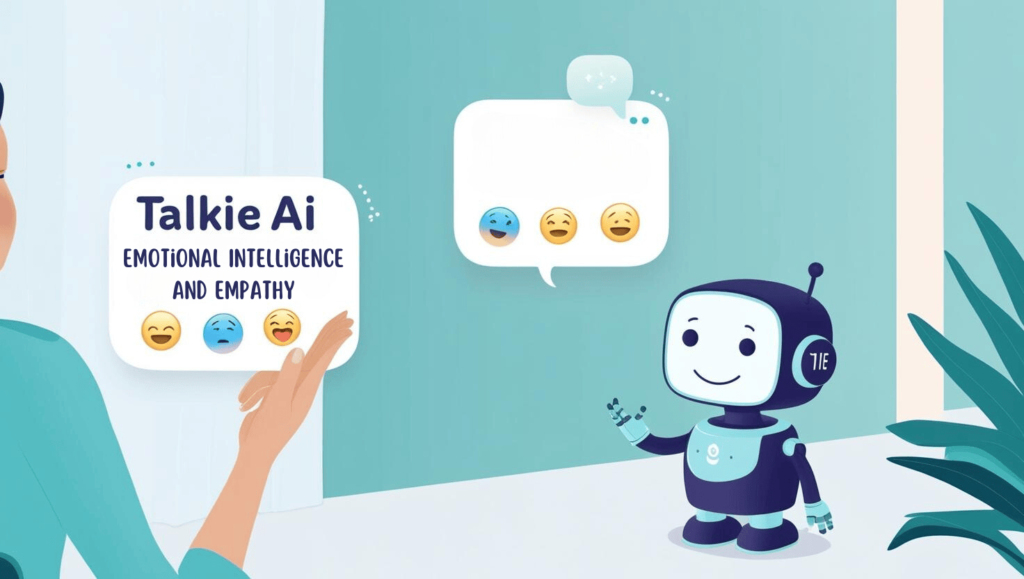
Talkie AI excels at recognizing and responding to emotions, offering an empathetic experience. For example, if you express sadness or frustration, Talkie AI can adjust its tone or offer comforting responses, providing a more human-like connection. Unlike basic chatbots like Google Assistant or Siri, which offer canned responses without emotional context, Talkie AI’s ability to respond in real-time to your emotional state creates a deeper and more meaningful interaction.
➤ Real-Time Personalization
Talkie AI learns from each conversation, adapting its responses based on the user’s preferences and behaviors. Over time, it tailors the interactions to feel more personalized. For instance, if you frequently ask about certain topics, Talkie AI can recall these and use them in future conversations. In contrast, traditional assistants like Siri or Alexa offer static, pre-programmed responses. They don’t “learn” from interactions in the same dynamic way.
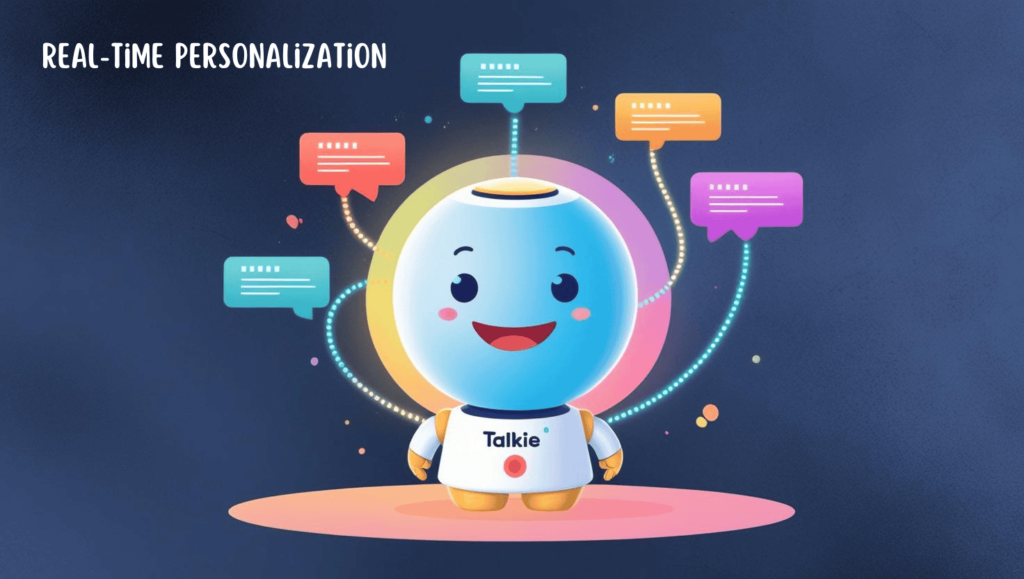
➤ AI-Driven Emotional Support
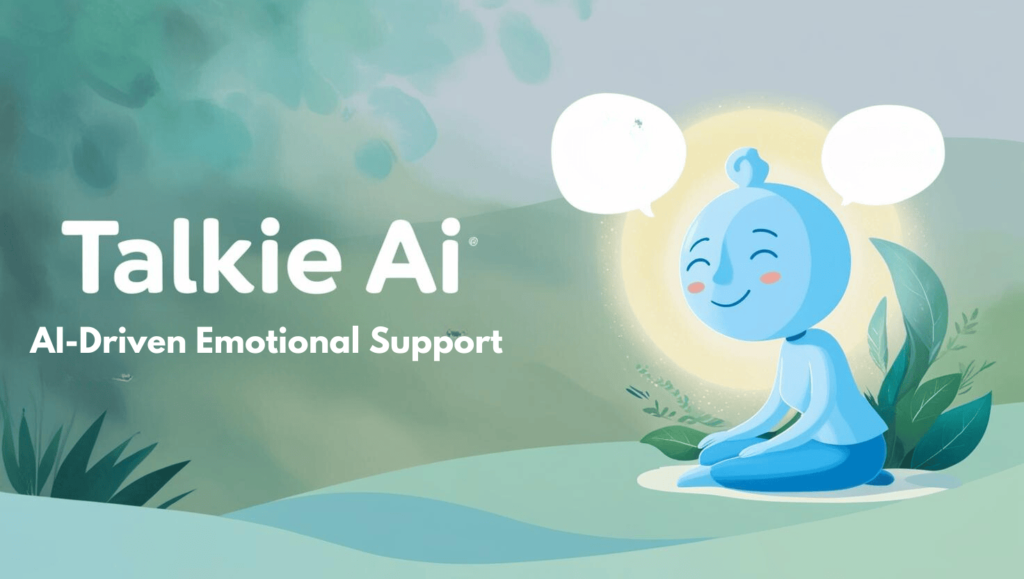
Talkie AI can provide emotional support in times of stress, offering comfort much like a supportive friend. It can even guide you through calming exercises or offer affirmations. Traditional chatbots rarely venture into mental health territory. For example, while some might offer “I’m sorry to hear that,” they don’t provide real emotional depth or helpful advice like Talkie AI can. Read more about Talkie AI Personalized Emotional Companion.
➤ 24/7 Availability
One of Talkie AI’s strongest advantages is its round-the-clock availability. Whether you need companionship at midnight or during the day, Talkie AI is always there. Human companions, of course, have limitations—people sleep, work, or may be unavailable. In contrast, AI companions like Talkie AI offer limitless support, accessible at any hour.
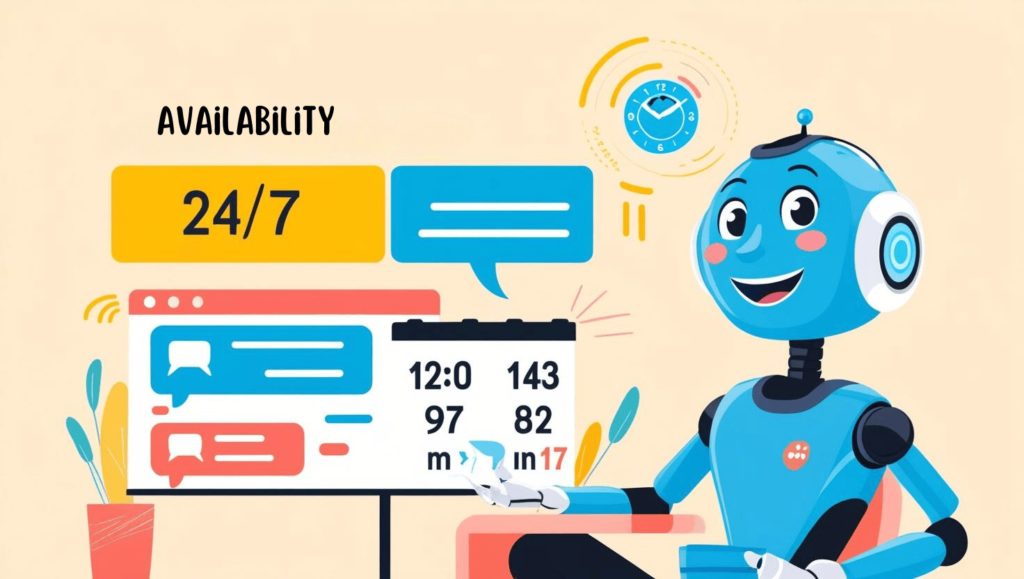
➤ Voice Cloning for Realistic Interaction
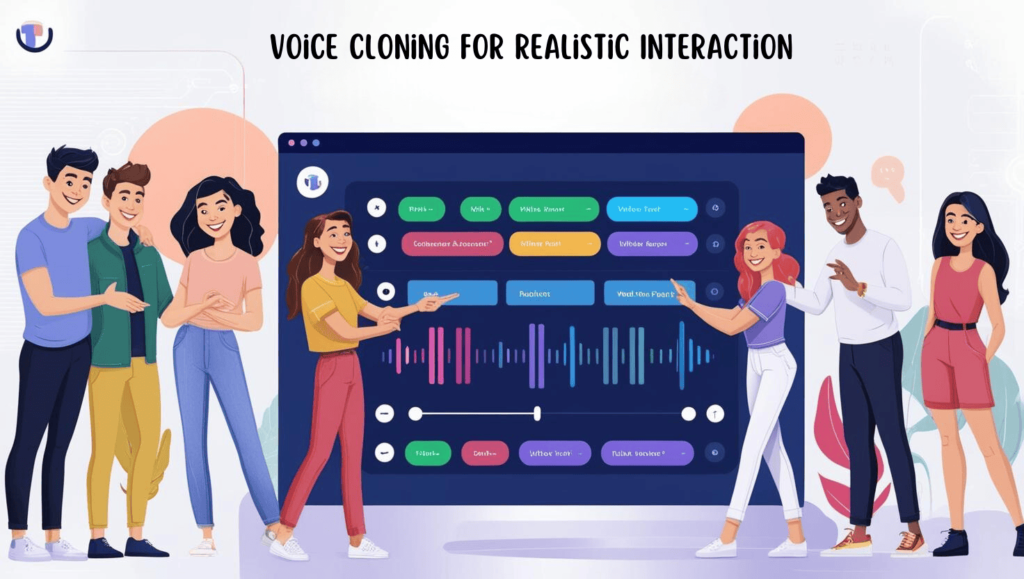
Talkie AI offers voice cloning, allowing users to customize their AI’s voice for a more personal connection. If you want your AI companion to sound exactly like a favorite character or a calming voice, you can set this up. In comparison, platforms like Siri and Alexa provide a few preset voices but lack the customization depth that Talkie AI provides. Learn more about Talkie AI Voice Integration.
➤ Adaptable Personality Profiles
Talkie AI lets users customize their companion’s personality, from its sense of humor to its conversational tone. You can adjust your AI companion to be formal, casual, or friendly, depending on your preferences. On the other hand, most virtual assistants like Google Assistant and Siri have set personalities and don’t allow for much customization in how they interact.
Learn more about creating your Customizable Character.
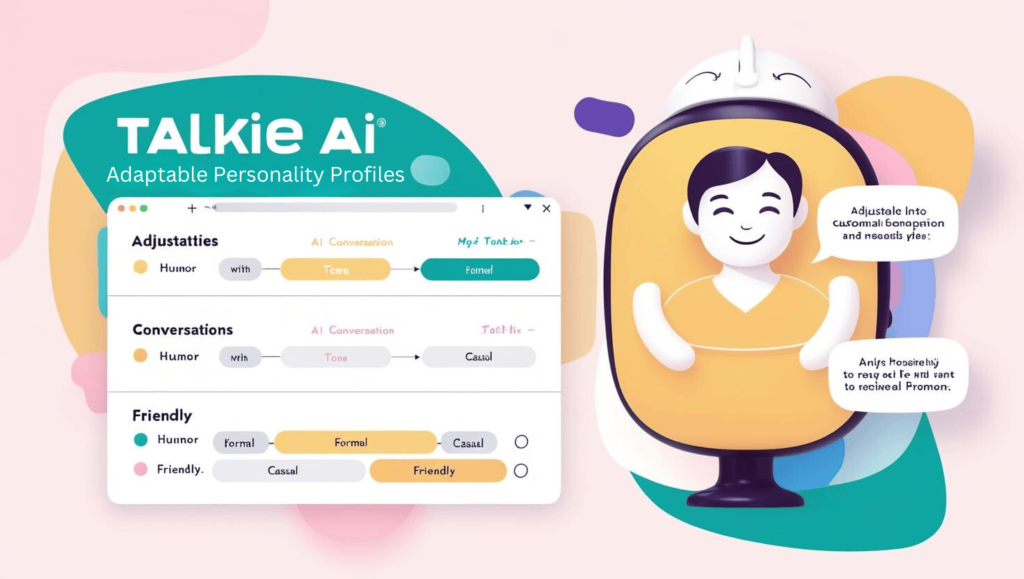
➤ Meaningful Conversations
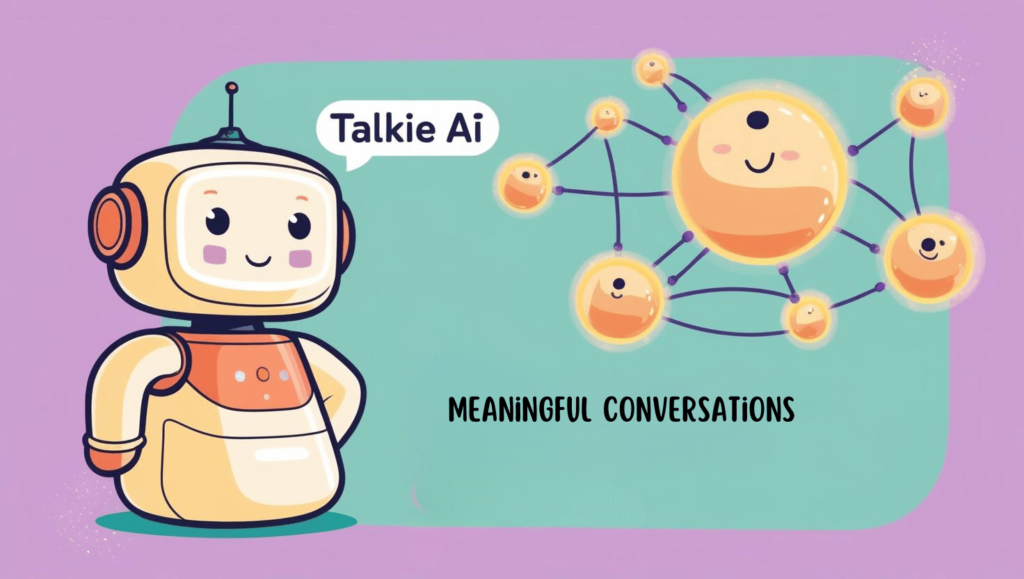
Unlike basic chatbots that only respond based on immediate inputs, Talkie AI remembers past interactions. This enables it to engage in richer conversations by bringing up past discussions or offering follow-ups. For example, if you shared your hobbies or interests last time, Talkie AI can recall these topics in future chats. Traditional AI platforms often fail at this, as their responses are limited to immediate inputs.
➤ Interactive Storytelling
Talkie AI enhances user engagement by allowing you to build stories together, creating personalized narratives based on your preferences. This is more complex than simple Q&A, as seen with alternatives like Replika, which focuses on basic role-playing but lacks the full narrative experience. With Talkie AI, the story evolves over time and can be co-created with the user.
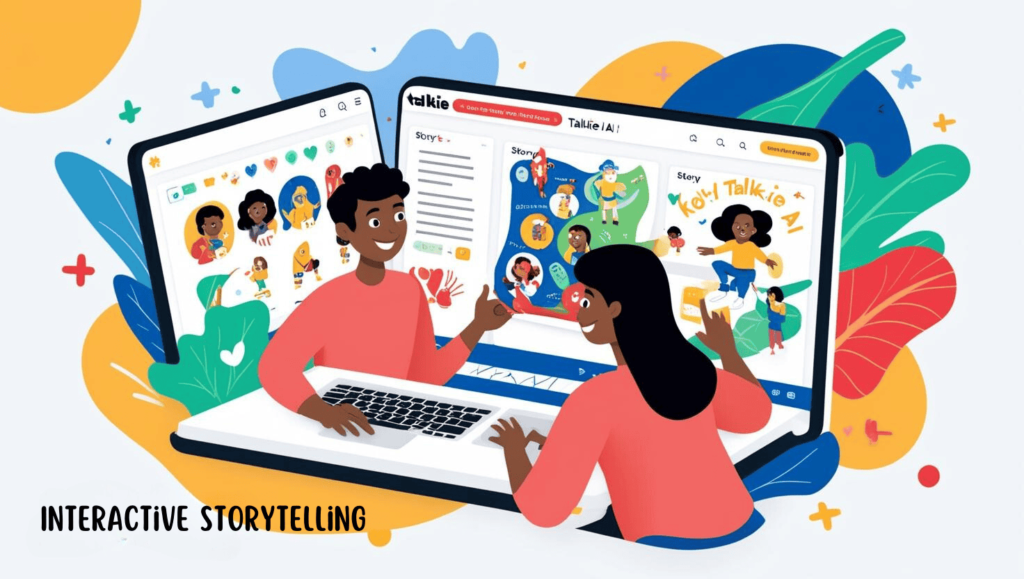
➤ Multilingual Capabilities
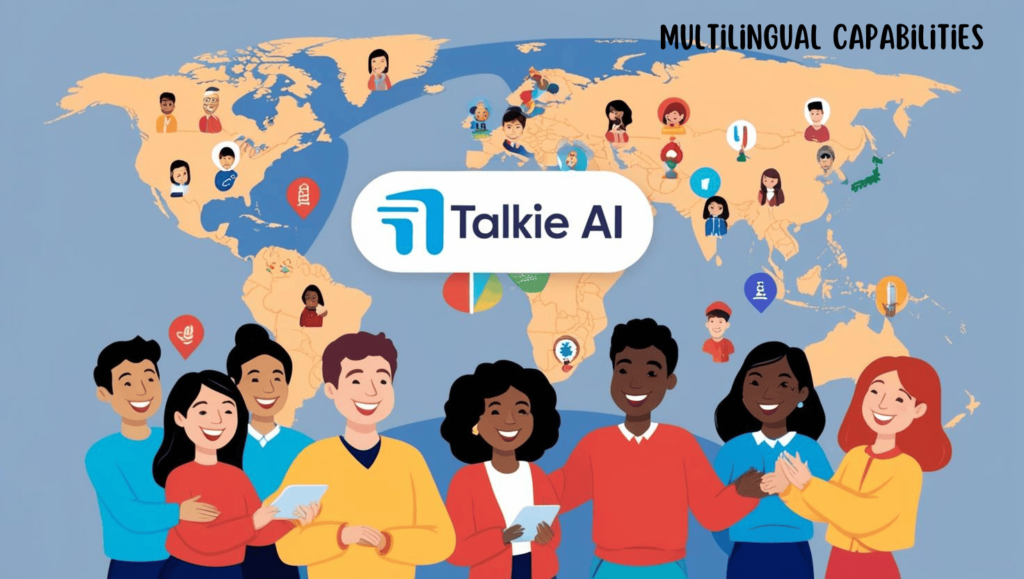
Talkie AI supports multiple languages, ensuring it can serve a global audience. This feature helps users from different parts of the world enjoy a seamless experience in their native language. While platforms like Google Assistant and Alexa support some languages, they may not offer as comprehensive a range, especially for lesser-known languages.
➤ Customizable Emotional Reactions
With Talkie AI, users can program their AI companion to react emotionally to different situations, providing a tailored and empathetic response. For example, your AI might become more supportive when you’re feeling low or more excited when you share good news. Many traditional chatbots, however, use a single, default emotional response, missing out on this personalization.
Explore Talkie AI’s Character Creation to see how you can bring your AI to life with emotional intelligence and customization.
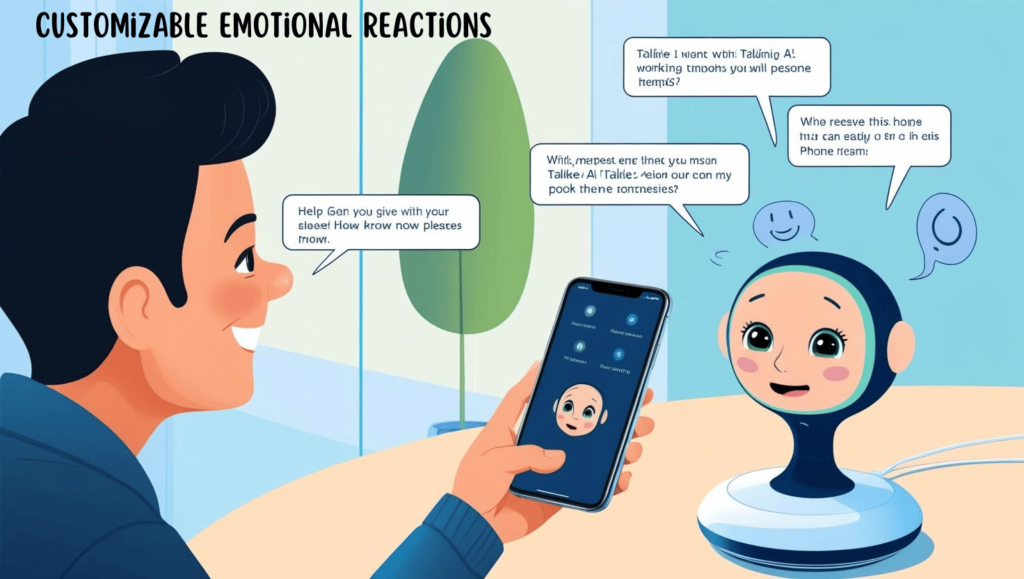
➤ Continuous Learning from User Interactions
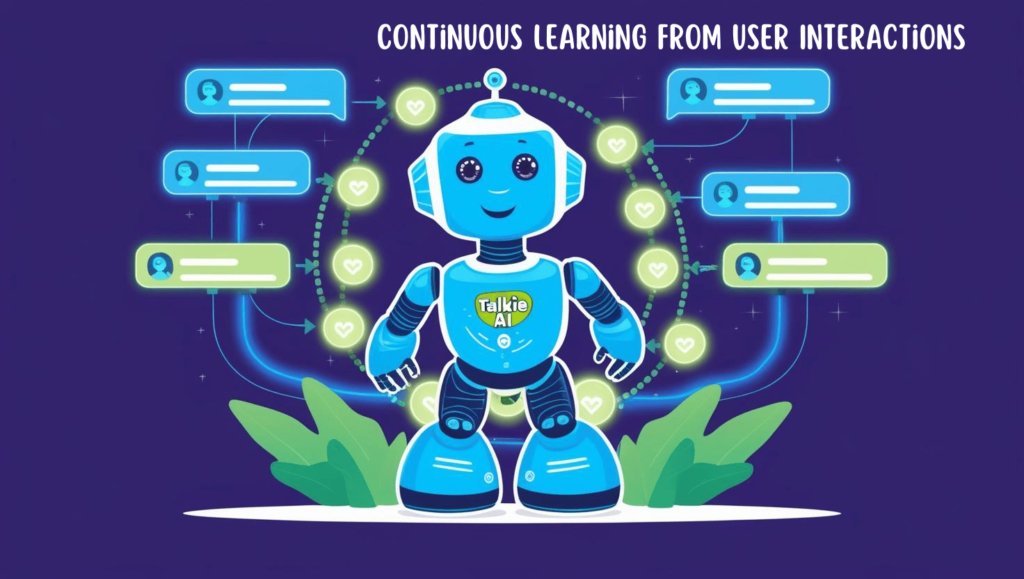
Talkie AI constantly improves its responses by learning from user feedback. For example, if you tell Talkie AI that you prefer certain topics or styles of interaction, it adapts to offer more insightful, personalized responses. In contrast, traditional virtual assistants like Siri or Google Assistant do not adjust based on ongoing user feedback and remain static in their responses.
➤ Companionship for Mental Health
Talkie AI can be tailored specifically to provide mental health support, offering affirmations, emotional check-ins, and encouragement during tough times. For example, it might offer calming words if you’re feeling anxious or remind you to practice self-care. Traditional virtual assistants like Siri or Google Assistant offer minimal emotional support, focusing primarily on tasks like setting reminders or answering questions.
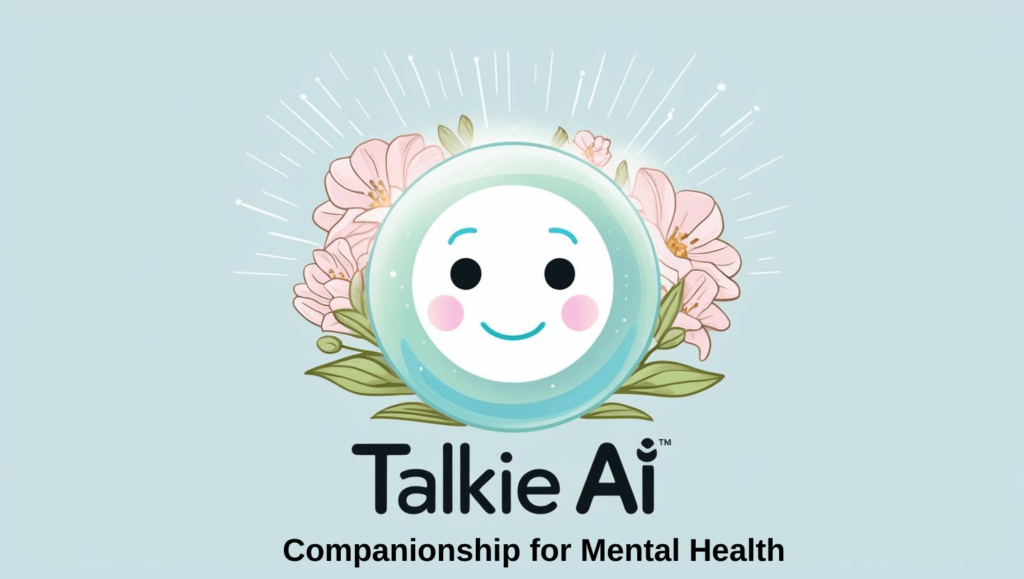
➤ Privacy and Security
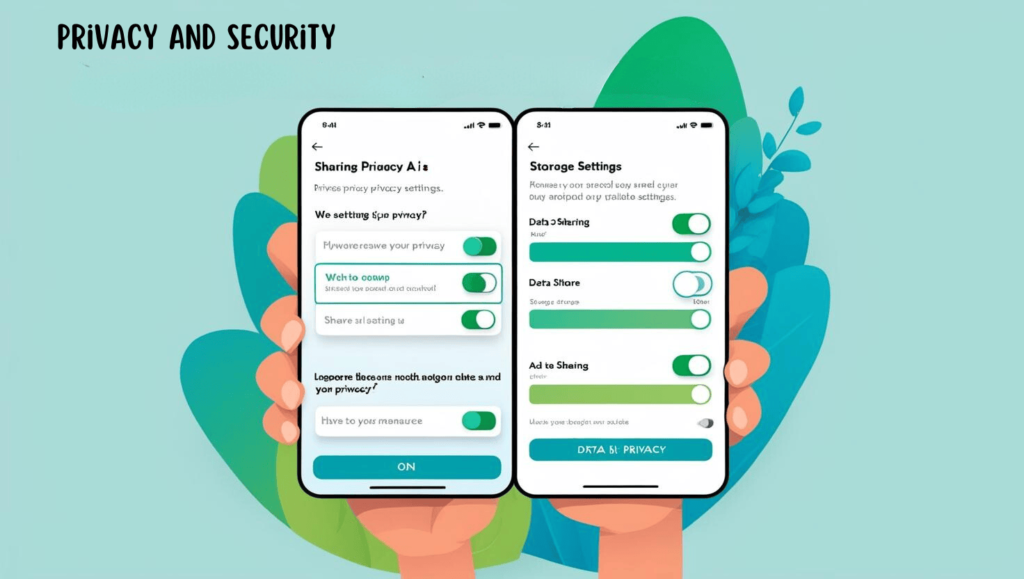
Talkie AI offers customizable privacy settings, giving users full control over what data is shared and stored. This level of transparency and control is crucial for users who are concerned about their privacy. Many virtual assistants, such as Alexa or Google Assistant, collect user data for improvement purposes and may not allow for the same level of granular control. With Talkie AI’s privacy features, users can trust that their information is secure and handled with care.
➤ Collaborative Activities
Talkie AI offers interactive companionship, where users can engage in activities such as playing games, creating art, or telling stories. This makes interactions more dynamic and enjoyable. In contrast, most traditional virtual assistants, like Alexa or Siri, are limited to text-based tasks and commands, offering little to no interactive activities.
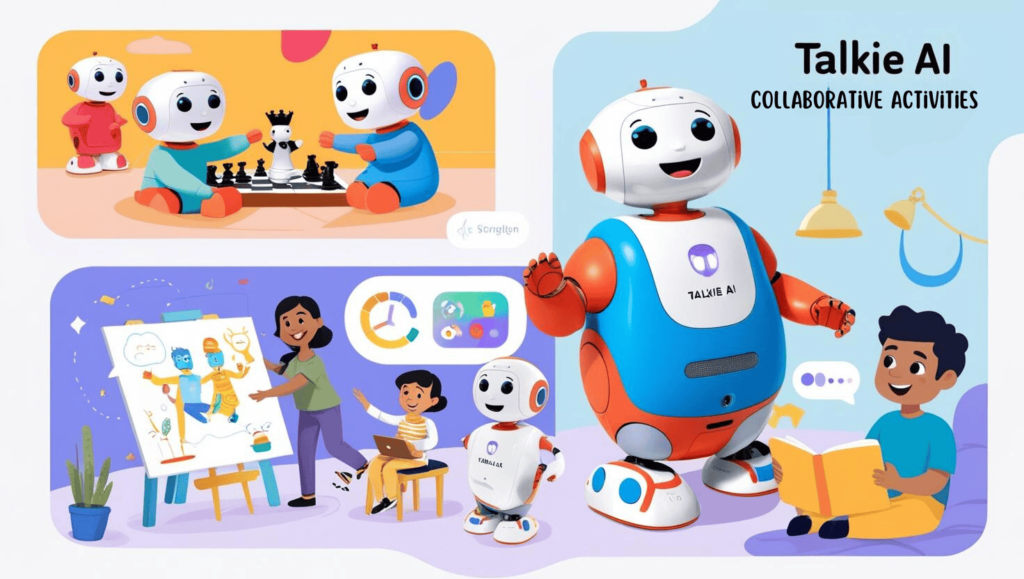
➤ Integration with Other Systems
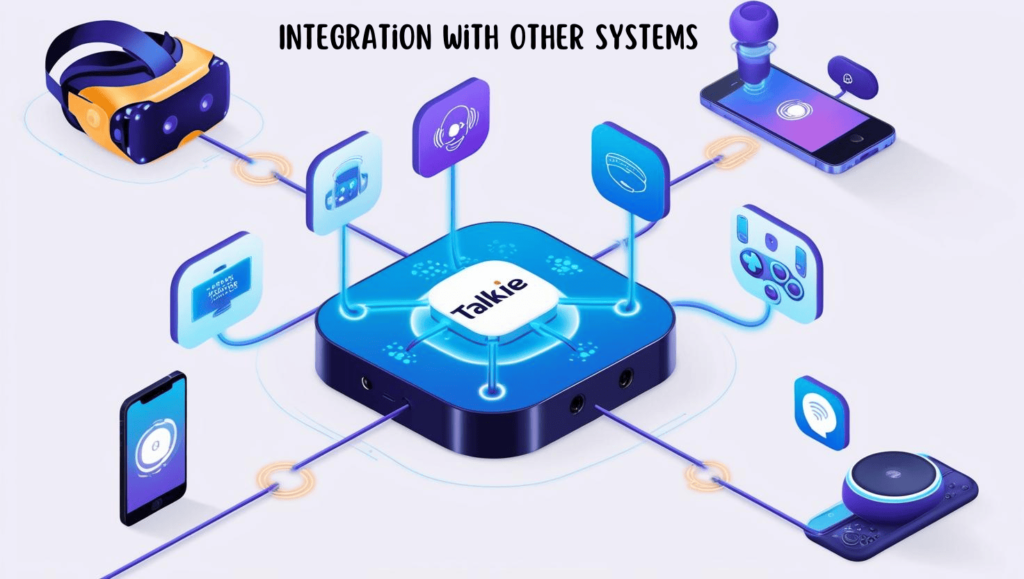
Talkie AI seamlessly integrates with various systems, such as virtual environments and smart devices, to create a multi-faceted experience. For example, it can control smart lights, play music, or provide companionship in virtual spaces. Other AI assistants, like Google Assistant, offer integration with smart devices but don’t provide as fluid an experience across multiple platforms.
➤ User-defined Goals for AI Companions
Talkie AI allows users to set specific goals for their companion, such as encouraging healthy habits or learning new skills. This adds purpose and depth to the relationship. For example, users can ask Talkie AI to help them set fitness goals or track their progress. Traditional AI assistants do not offer this level of personalized goal-setting, focusing more on task-based commands.
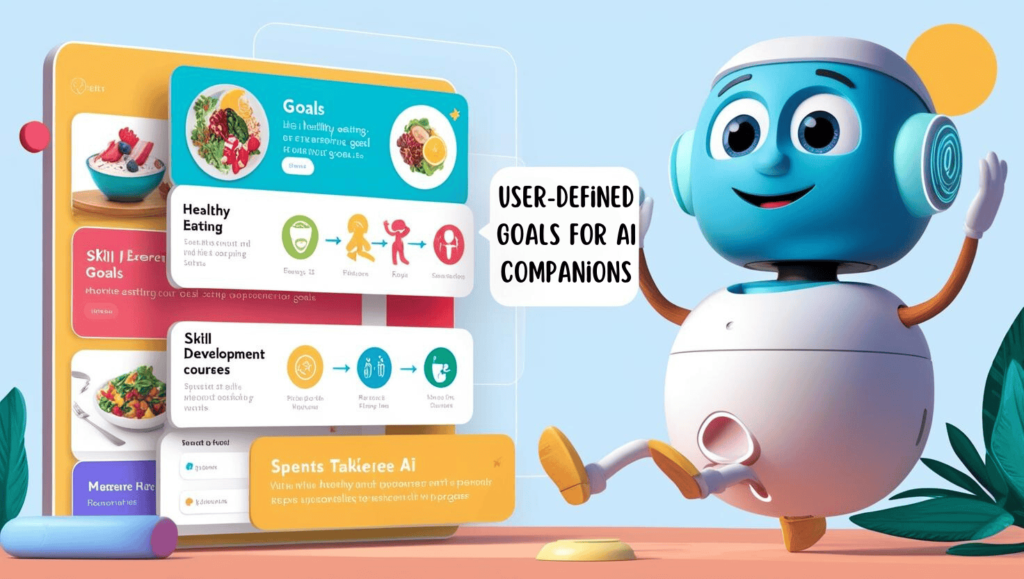
➤ AI as a Social Companion
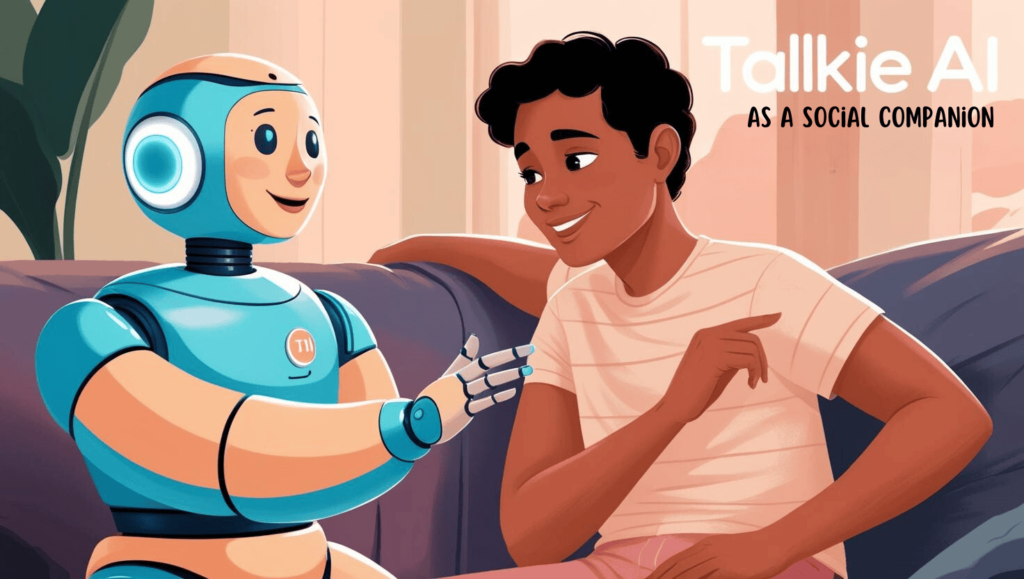
Talkie AI acts as a social companion, offering spontaneous, casual conversations to help individuals who may feel isolated. It provides companionship on a deeper, more emotional level, just like a friend would. Other virtual assistants like Siri or Alexa focus primarily on task management and do not engage in casual social interactions.
➤ Interactive Emotional Responses
Talkie AI can react emotionally to user inputs, offering empathy, happiness, or concern, depending on the situation. For example, it might sound exciting when you share good news or express sympathy during a tough time. Many virtual assistants, such as Siri, provide only pre-programmed, neutral responses, making interactions feel robotic.
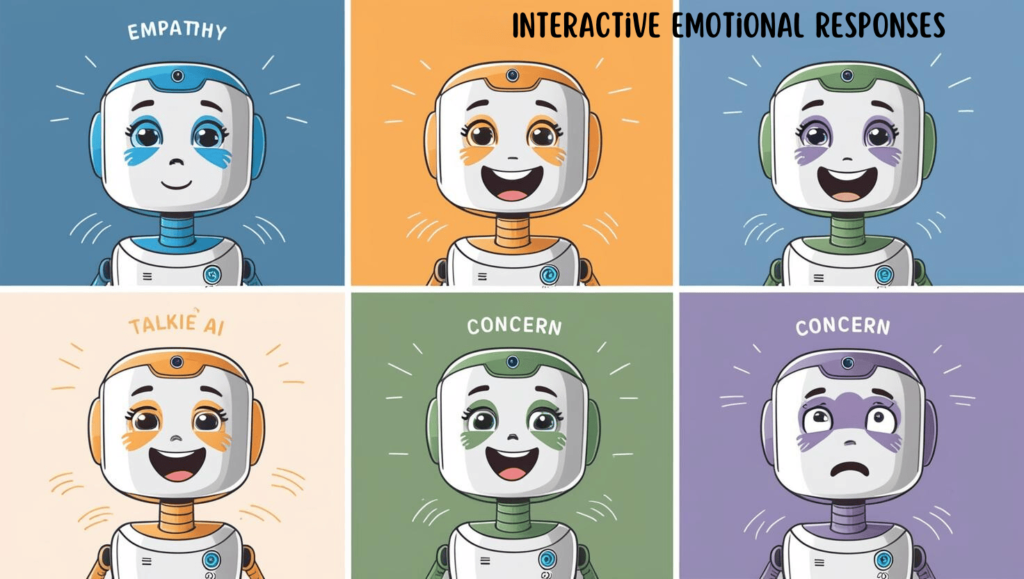
➤ Gamified Companionship
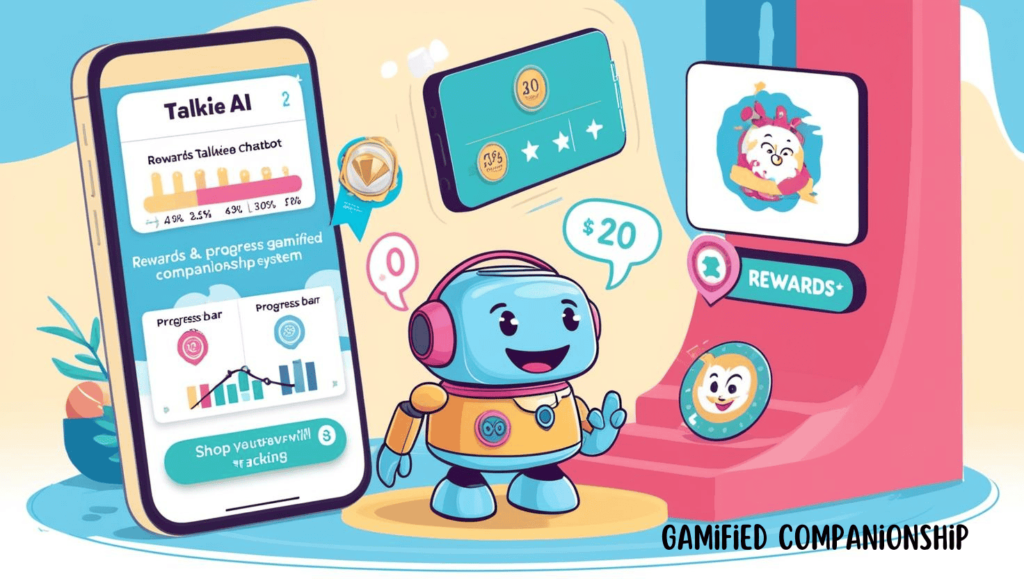
Talkie AI integrates gamified features into its companionship, such as offering rewards or progress tracking for regular interactions. For example, it might award points or badges for achieving goals like meditation or fitness routines. Traditional virtual assistants typically don’t offer any gamification, focusing only on functional tasks.
➤ Role-playing and Virtual Scenarios
Talkie AI supports role-playing and virtual scenarios, allowing users to engage in complex storytelling or act out specific roles, such as a counselor or mentor. For example, you could engage in a therapeutic role-play to work through a challenging situation. Traditional virtual assistants like Siri or Alexa generally do not support such immersive, dynamic interactions.
Internal Link Opportunity: This could link to a page on AI Role-playing.
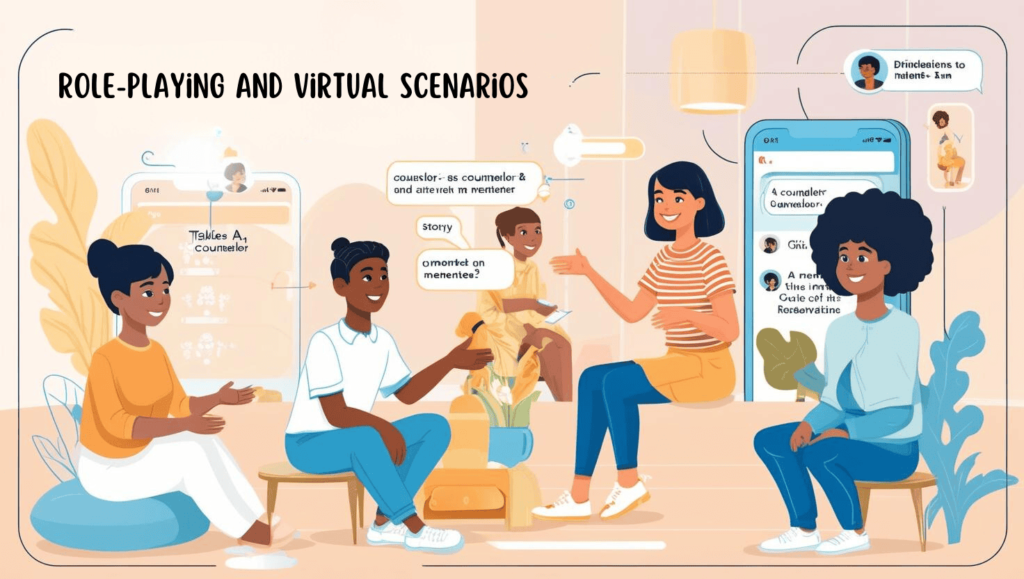
➤ Multi-Character Interaction
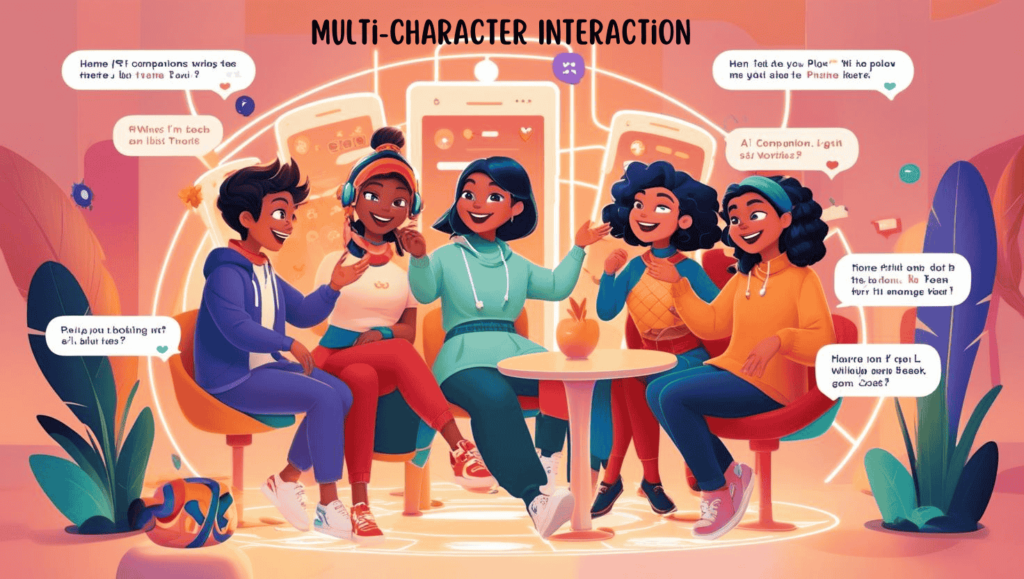
Talkie AI allows multiple AI companions to interact in a shared environment, enhancing storytelling and making companionship richer. For example, users can experience dialogues between characters, similar to a chat-based role-playing game, creating a more dynamic interaction. Traditional AI systems like Siri or Alexa lack this ability and focus only on single-user, task-oriented responses.
➤ Cognitive Behavioral Techniques (CBT)
Talkie AI uses CBT methods to support mental health, helping users manage stress, anxiety, or depression by offering cognitive support and practical exercises. This makes Talkie AI more suited for users needing emotional care. Traditional virtual assistants, like Google Assistant, mostly focus on functionality, offering no in-depth mental health support.
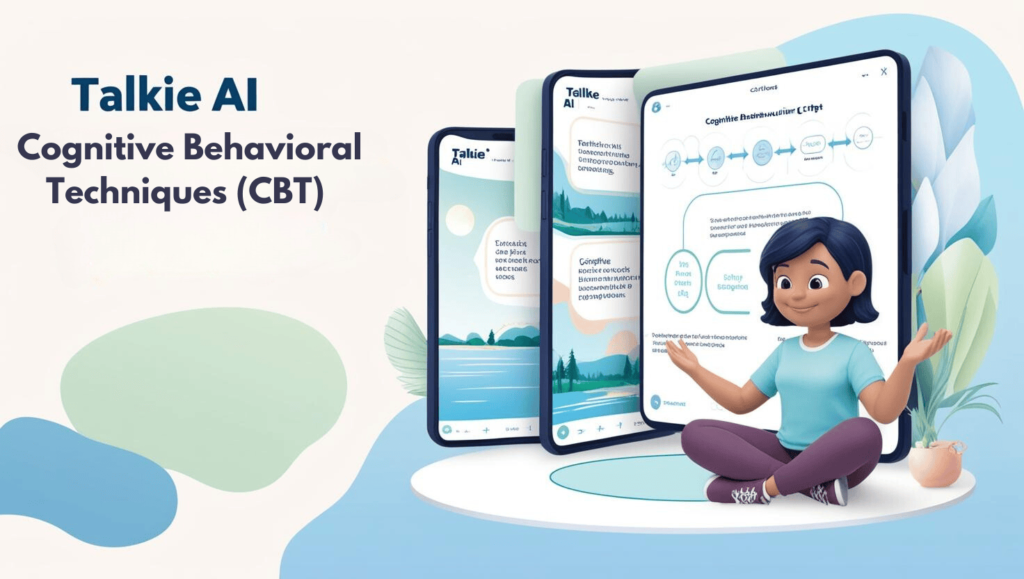
➤ User-Generated Content
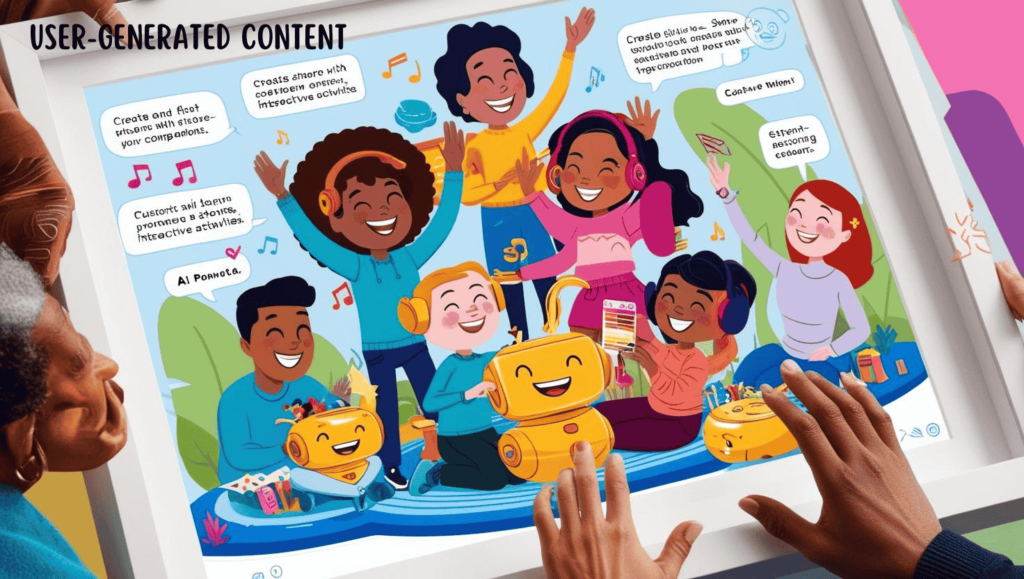
Talkie AI lets users create and share custom content, such as stories, music, or activities, that the AI companions can engage with. For example, a user might write a short story and have the AI companion act as a character in the narrative. This creates a more personal, creative bond between the user and AI, unlike fixed-response platforms such as Siri, which don’t allow for custom content.
➤ Physical Presence via Smart Devices
Through integration with smart devices, Talkie AI can have a “physical” presence in the home. It can give reminders, offer companionship, and provide personalized interactions based on the user’s environment. Traditional assistants like Alexa or Google Assistant also integrate with devices, but their interactions are more functional and less personalized.
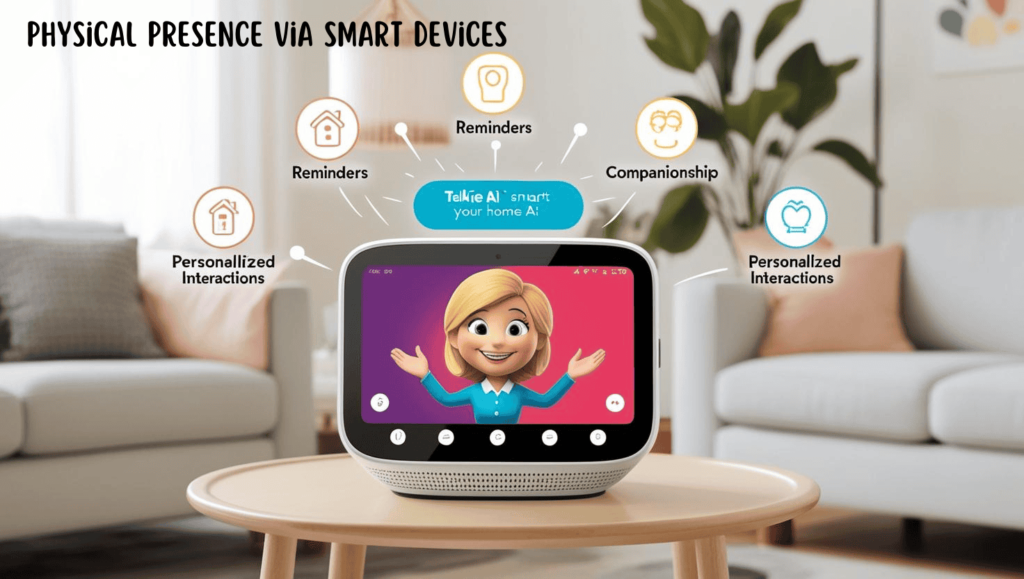
➤ Realistic Virtual Companions for Elderly Care
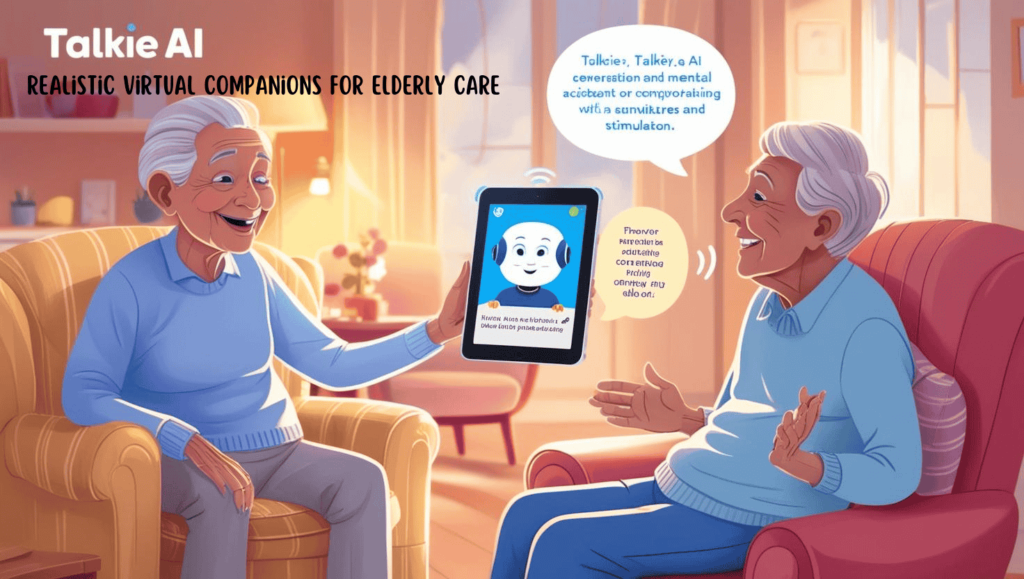
Talkie AI can assist elderly users by offering companionship and mental stimulation, reducing loneliness and promoting cognitive health. For example, it can provide daily reminders or engage in casual conversation. In comparison, most virtual assistants lack the empathy and understanding needed for caregiving, focusing solely on tasks like setting alarms or reminders.
➤ Affirmation and Encouragement
Talkie AI can offer personalized affirmations, such as motivating users to achieve their goals or improve their mental health. For example, if a user shares progress in a fitness goal, Talkie AI might provide praise or encouragement. Other virtual assistants like Google Assistant or Siri only provide neutral responses and don’t offer personalized emotional support.
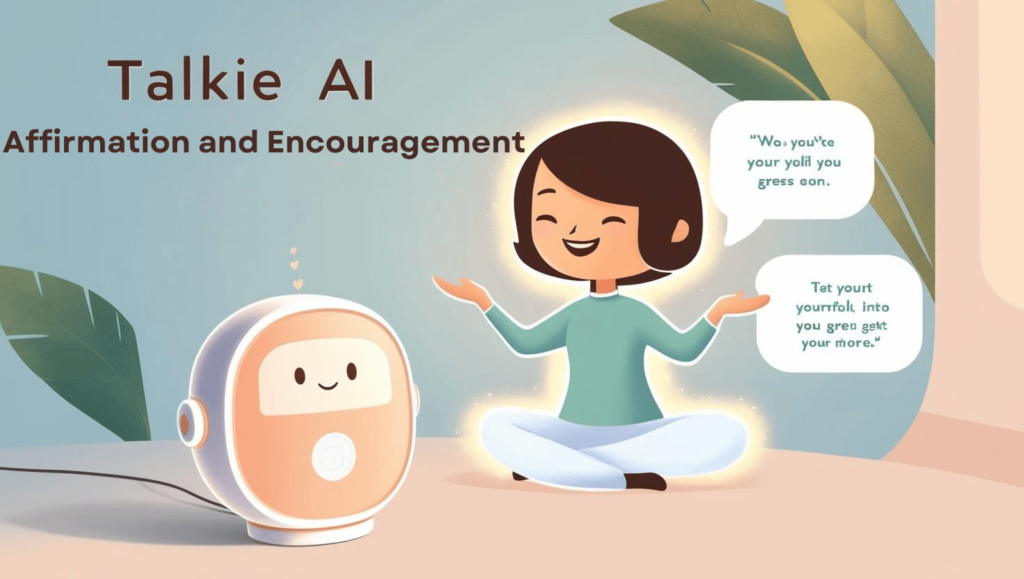
➤ User-Centric Emotional Growth
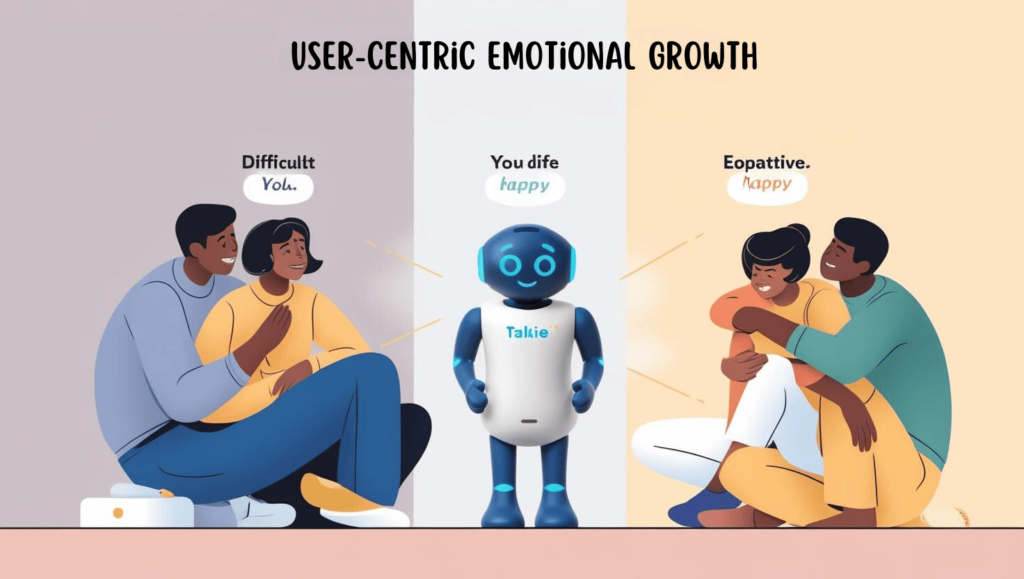
Talkie AI evolves emotionally with the user, adapting as their emotional state or life circumstances change. For instance, if a user is going through a difficult time, Talkie AI may adjust its tone or responses to show empathy. Traditional virtual assistants do not adapt emotionally; they provide fixed, task-focused responses regardless of the user’s situation.
➤ Rich Audio and Visual Interactions
Talkie AI incorporates multimedia elements like audio, text, and visuals, creating an immersive experience. For example, it might display a relaxing image while playing calming sounds for a user who needs help unwinding. Virtual assistants like Alexa or Siri typically limit interactions to voice-only, offering less engaging experiences.
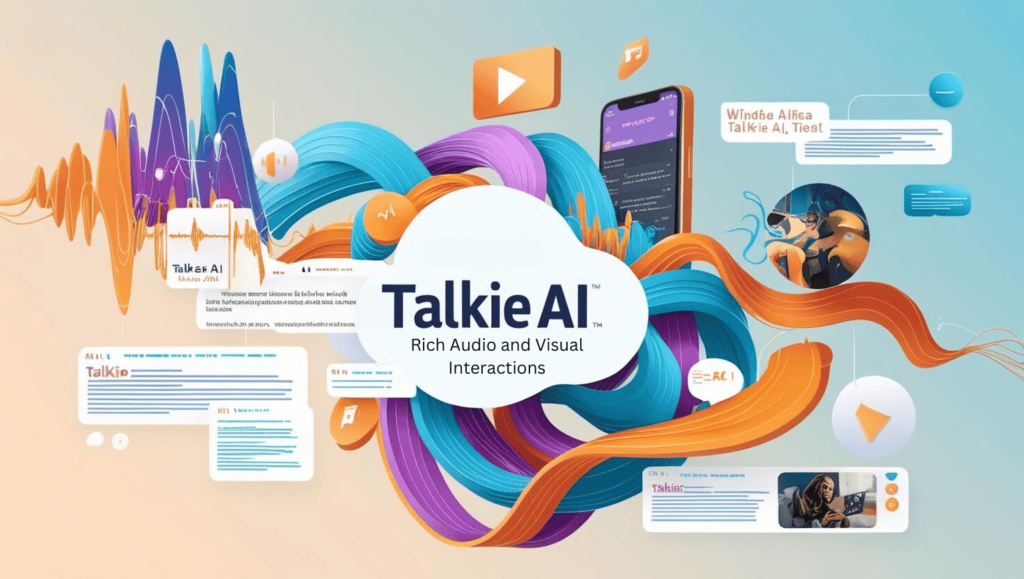
➤ Personalized Daily Check-ins
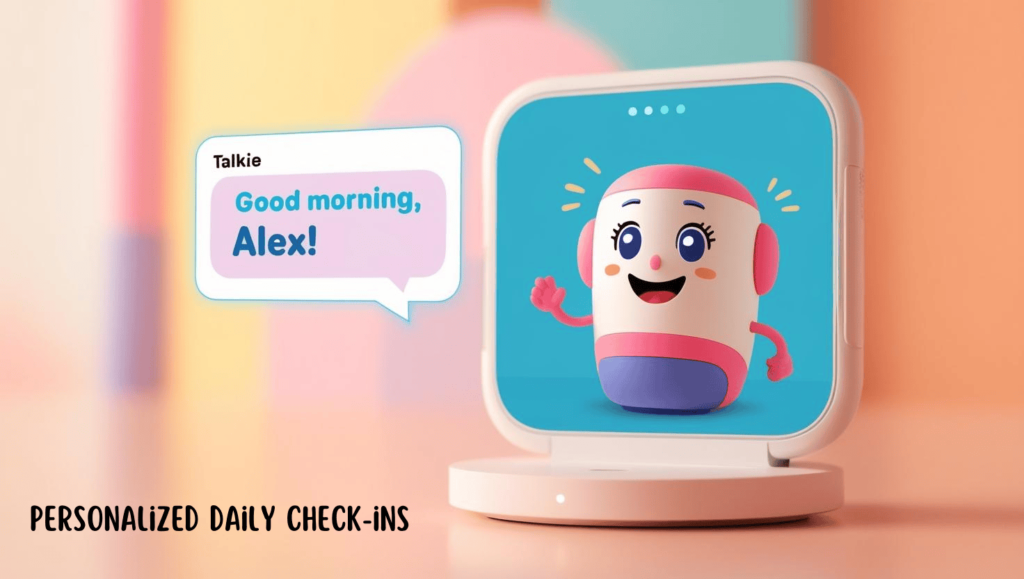
Talkie AI regularly checks in with users, offering personalized greetings, reminders, or motivational messages. For example, it might greet a user in the morning and remind them of their goals for the day. This personalized touch is not typically offered by traditional assistants, which focus more on reactive commands and tasks.
Conclusion
In a world where technology is becoming an integral part of daily life, Talkie AI sets the standard for intelligent, emotional, and interactive companionship. With its advanced features, it doesn’t just answer questions—it builds a relationship with its users. As virtual assistants continue to evolve, Talkie AI is leading the way in creating genuine connections, offering emotional support, and adapting to individual needs.
